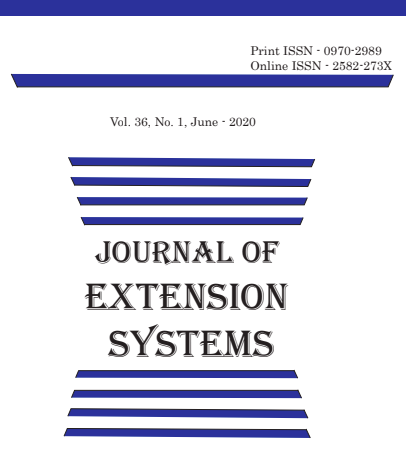A Study of Self Help Groups in Empowering the Rural Women
DOI:
https://doi.org/10.48165/JES.2020.36105Keywords:
Rural women, Self help groups, Income generation, Empowerment, ConstraintsAbstract
A Self-Help Group (SHG) is a registered or unregistered group of people having homogenous socio-economic background, voluntarily coming together to save small amounts regularly, mutually agree for the contribution of a common fund and to meet their emergency needs. It aims engaging rural women with new activities to increase their income, development of better networks and linkages and improved the existing conditions of the SHGs members. The study was conducted to analyse the income generating activities being taken up and the level of empowerment of SHG members.. Result pertaining to income generating activities indicated that majority of the respondents were involved with small micro enterprises. The need to develop SHGs and motivate rural women to systematically manage and choose their activities in order to generate income can be advocated. Certain essential activities like choosing the more appropriate activity, market intelligence, establishing marketing linkages etc. are an indication of the capability of the groups as SHGs becoming a tool for social empowerment.
Downloads
References
Downloads
Published
Issue
Section
License
Copyright (c) 2022 Journal of Extension Systems

This work is licensed under a Creative Commons Attribution-NonCommercial-NoDerivatives 4.0 International License.

